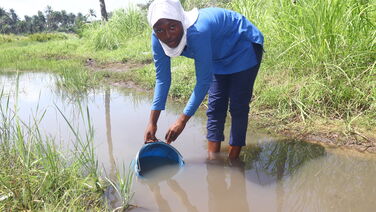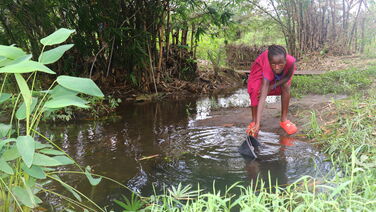
Daries Salaam Ahmadiyya Muslim Jr & Sr Secondary School
Two community members started the initiative to build the Daries Salaam Ahmadiyya Muslim Junior and Senior Secondary School in 2008. They saw that children in the community had to walk 7 miles to the nearest Secondary school. They started with 38 students and three teachers. They now serve 419 students, 171 girls and 248 boys.

Daries Salaam COG Primary School
The Daries Salaam COG Primary School began with a single building housing 150 students in a single room to reduce the burden of school children walking long distances to school. The current building now has four classrooms and an office for staff and the headteacher. They currently have 159 girls and 170 boys attending.

St. Charles Primary School
Background on Sierra Leone:The population includes many tribes including Mende and TemneThe capital of Freetown was formed by freed British slaves in the early 1800’sSierra Leone was a British Colony from the 1800s until 1961Extraction of minerals and wealth continues to this day, leaving the country in poverty1992-2002: Devastating Civil War followed by years of peace (ongoing)2014-2015: Ebola Outbreak with over 4,000 deaths and the loss of 10% of health care workersA democracy with a president and a parliament Demographics of Sierra Leone:Population: 8 MillionAverage age: 18Literacy: 35% for women; 51% for menHuman Development index:182 out of 189 countries3 doctors per 100,000 peopleLife expectancy: 55Maternal Mortality: 1 in 31 women, but improvingChild Mortality: 1 in 9 do not reach age 5Lembema is a village located three miles from Tikonko town and serves as the divisional head for approximately six surrounding villages. It is also one of our implementing partners, RHCI’s outreach clinic points. The village has a population of about 680 people, with the majority being youth and children. Most residents are subsistence farmers, primarily growing crops for personal consumption.